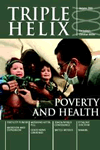The GMC guidance, by contrast makes it clear that when death is not imminent, artificial nutrition or hydration can only be withdrawn in circumstances where 'the patient's condition is so severe, and the prognosis so poor that providing artificial nutrition or hydration may cause suffering, or be too burdensome in relation to the possible benefits.'(Para 81)
This should provide a safeguard against the slippery slope that could follow if doctors start to treat thirst and hunger (or the confusion caused by them) with sedation rather than food and fluids. We were also pleased to see provision for juniors conscientiously to object to being executives for non-treatment decisions that they believe are unethical or morally wrong (Para 29) without being forced to participate by personally delegating the task to others.
The fact that the guidance has substantially changed for the better is a further encouragement to ensure that we continue to participate at all possible levels in such discussions. The CMF submission to the consultation is still available on our website at www.cmf.org.uk/ethics/submissions/?id=19
































